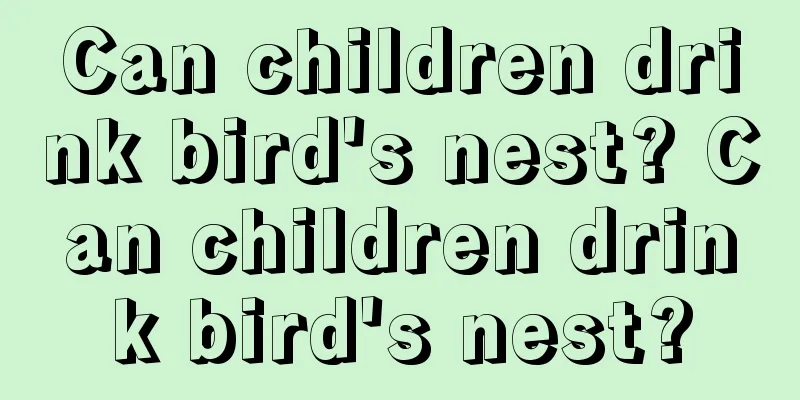Newborn baby crying

|
I believe many people have had this experience, that is, after the newborn is born, it is always felt that she is crying. No matter what the situation is, she will respond by crying. The main reason is that newborns do not have some skills to express their emotions and do not know how to express their emotions. So what are the reasons for the newborns crying all the time? Some people who have just become parents do not understand it very well. So let us find out together what reasons may cause newborns to cry all the time. Here are 7 common reasons why your baby cries. 1. Baby is hungry Hunger is the most common reason why newborns cry. The younger the baby, the more likely it is that he is crying because he is hungry. However, the first one or two days after the baby is born is an exception, because some babies do eat less at that time. If you are breastfeeding, you may be more aware of it when you start to produce small amounts of colostrum and notice yourself "coming in" around the third day after delivery. Babies have small stomachs and can't eat too much. If your baby is crying, try feeding him because he is probably hungry. He may not stop crying immediately, but as long as he wants to eat, let him keep eating. When he is full, he will stop making a fuss. If your baby still cries after being full, it may be because he has other needs. 2. The baby needs to be changed or have his diaper changed Babies tend to get very sensitive and fuss if their clothes are too tight or their diapers are dirty. Some babies will let you know right away if they need a diaper change, especially if their skin is irritated. But there are also babies who don’t seem to care if their diapers are dirty, and they even feel warm and comfortable. No matter which type your baby has, it's easy to check whether the diaper is dirty. You can also take this opportunity to find out if the diaper is too tight or if your baby's clothes make him feel uncomfortable. 3. Your baby feels too hot or too cold Some newborns are not used to the feeling of bare skin after a diaper change or a bath, and prefer to be wrapped warmly. If this happens to your baby, you'll quickly learn how to quickly change his diaper so that he can calm down. However, be careful not to overdress your baby to avoid overheating. In principle, your baby needs to wear one more layer than you do. The same applies when your baby is sleeping. If he is too hot, cover him less; if he is too cold, cover him more. Babies' hands and feet are usually slightly cooler, so to know if your baby is hot or cold, you should feel his tummy. Your baby's room temperature should be kept at 18°C. 4. Your baby wants you to hold him Some babies just want to be hugged more. While older children may be comforted by just the sight or sound of your voice in the room, newborns generally need to be held. If your baby is well fed and has had his diaper changed, he may be crying just because he wants you to hold him. You may worry that you will spoil your baby by holding him or her all the time, but this is unlikely in the first few months. Different babies have different needs for holding. Some babies may always need your attention, while others can stay alone quietly for a long time. If your baby wants you to hold him, hold him. Put him in a front-loading baby backpack and you can free up your hands to do other things. 5. Baby wants to sleep You might think that babies should be able to sleep whenever they want, no matter where they are. However, if your baby is overstimulated (like if you have a lot of guests over at home), he may become overstimulated and have trouble calming down. Newborn babies cannot accept too much stimulation at once, such as light, sound, being held by others, etc. Many parents have found that their babies cry more than usual when someone comes to their home. If you find that your baby is crying for no particular reason, it may be his way of saying "I've had enough!" If you can take him to a quiet place and slowly reduce the stimulation, he may cry for a while but will eventually fall asleep. 6. The baby is not feeling well If you've just fed your baby and there's nothing wrong with him (a baby might be upset by something very small, like a hair caught in his toe or a label pricking him), but he's still crying, consider taking his temperature to see if he's sick. A baby's cry when he's sick may sound different from when he's hungry or upset, and may be more urgent or high-pitched. Likewise, if a baby who normally cries all the time suddenly becomes unusually quiet, that could also be a sign that something is wrong. No matter what the situation is, if you feel something is wrong, be sure to take him to the hospital. 7. Other reasons why babies cry Sometimes you may not be able to figure out what went wrong. Many newborns have bouts of fussiness and are difficult to soothe. This may last for a few minutes or it may last for several hours and turn into a violent colic-like attack. Colic occurs when your baby cries for at least 3 hours a day, at least 3 days a week. Many parents find colicky babies difficult to comfort. However, although there is no specific treatment, the duration of colic generally does not exceed 3 months. You may feel better if you remember that this situation will eventually pass. |
<<: Neonatal intracranial infection
>>: Genetic screening for deafness in newborns
Recommend
What causes nausea and vomiting in children?
Children's stomachs are very sensitive, and t...
Diet therapy for allergic asthma in children, these recipes are very valuable
If allergic asthma occurs in children, parents ar...
What to do if your child has eye bleeding
The eyes are the windows to the soul. It is becau...
Do children need to be on an empty stomach for the physical examination before entering kindergarten?
When children reach a certain age, they need to g...
Favorite Dinner Recipes for Kids
Many mothers are also very concerned about their ...
Causes of blood in children's stools
If a child has blood in his stool, parents must p...
What are the methods of steaming rice for babies?
Many mothers believe that breast milk is the best...
Why do children’s hands shake when writing?
Primary school students will encounter a lot of t...
Three-year-old baby with rhinitis coughs at night
The most common symptom of rhinitis is itching in...
How many times a day is normal for a three month old baby to poop?
My baby is three months old and is breastfed, but...
What to do when your 2-year-old baby is in the rebellious period
As the baby grows up, mothers will sigh that the ...
What are the dangers of tickling the soles of your baby’s feet?
With a baby in the family, everything will be bet...
Brain cysts in children
We all know that children are the fruit of every ...
What to do if a 7-year-old child has a nosebleed
Some children have nosebleeds, so they need to pa...
Does a baby sticking out tongue mean cerebral palsy? Reveal the truth to you
Some babies will stick out their tongues for a lo...









